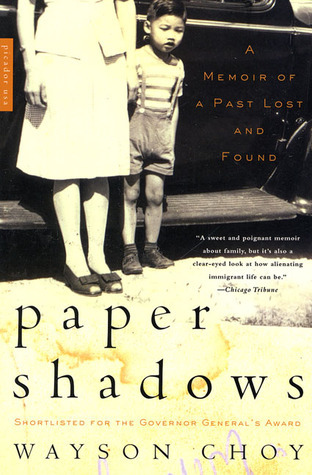What do you think?
Rate this book


352 pages, Paperback
First published October 1, 1999
The book opens during the publicity tour for the earlier book, with Choy receiving a mysterious message from a Vancouver woman who claims she’s just seen his birth mother.
Choy, in his mid-50s, discovers he was adopted in childhood, a fact that sends him scurrying back through his life, remembering childhood details, interviewing friends and family and piecing together facts for the book.
What he remembers and discovers forms the bulk of this very readable memoir, which takes us through his magical childhood filled with ghosts and superstitions, his troubled adolescence where he longed to be white, and on through his political awakening and discovery of his true self.
The book is filled with remarkably drawn scenes, poetic yet never precious. We watch as Choy and his mah-jong-playing mom come home late one night to find his father in a drunken rage, possessed by an evil ghost. We see the young Choy discover the magic of books and the freeing power of words. We see him glimpse but not understand his emerging homosexuality.
And we see the true price that Chinese immigrants paid once they settled in Canada.
Choy makes Vancouver’s Chinatown seem a microcosm of the world, and his exploration of his own particular family history allows us to reflect on large themes like home, place and our own intergenerational secrets.
Paper Shadows is a healing book about life, death and coming to terms with our pasts, real or imagined. It’s haunting.